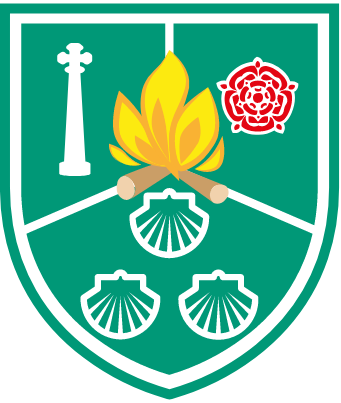Art and Design
Link Governor: Mrs D Peacock
Intent:
Art and Design at Leyland St James CE Primary School follows the Kapow scheme of work which aims to inspire pupils and develop their confidence to experiment and invent their own works of art. The scheme is designed to give pupils every opportunity to develop their ability, nurture their talent and interests, express their ideas and thoughts about the world, as well as learning about the rich heritage and culture of the British Isles and beyond. Art and Design at Leyland St James' CE Primary School supports pupils to meet the National curriculum end of key stage attainment targets and has been written to fully cover the National Society for Education in Art and Design’s progression competencies. We aim to inspire our pupils to create, experience, and participate in great arts and culture.
Implementation:
Art and Design at Leyland St James' is designed with four strands that run throughout. These are:
• Making skills
• Formal elements (line, shape, tone, texture, pattern, colour)
• Knowledge of artists
• Evaluating
These strands are revisited in every unit. In our Art and design skills and our Formal elements of art units, pupils have the opportunity to learn and practise skills discretely. The knowledge and skills from these units are then applied throughout the other units in the scheme. Key skills are revisited again and again with increasing complexity in a spiral curriculum model. This allows pupils to revise and build on their previous learning.
Our Curriculum overview shows which of our units cover each of the National curriculum attainment targets as well as each of the strands. Our Progression of skills shows the skills that are taught within each year group and how these skills develop to ensure that attainment targets are securely met by the end of each key stage. Kapow Primary’s Art and design curriculum develops pupil’s knowledge and understanding of key artists and art movements through the Every picture tells a story units and links to artists through practical work.
Our units fully scaffold and support essential and age-appropriate sequenced learning and are flexible enough to be adapted to form cross-curricular links with your own school’s curriculum. Creativity and independent outcomes are robustly embedded into our units, supporting students in learning how to make their own creative choices and decisions, so that 3 their art outcomes, whilst still being knowledge-rich, are unique to the pupil and personal. Lessons are always practical in nature and encourage experimental and exploratory learning with Key Stage 2 pupils using sketchbooks to document their ideas.
Knowledge organisers for each unit support pupils in building a foundation of factual knowledge by encouraging recall of key facts and vocabulary.
Impact:
Our Art and Design curriculum is designed in such a way that children are involved in the evaluation, dialogue and decision making about the quality of their outcomes and the improvements they need to make. By taking part in regular discussions and decision-making processes, children will not only know facts and key information about art, but they will be able to talk confidently about their own learning journey, have higher metacognitive skills and have a growing understanding of how to improve.
The impact of Kapow Primary’s scheme can be constantly monitored through both formative and summative assessment opportunities. Each lesson includes guidance to support teachers in assessing pupils against the learning objectives and each unit has a unit quiz and knowledge catcher which can be used at the start and/ or end of the unit
Through Art and Design we hope the following impact on our pupils:
- To produce creative work, exploring and recording their ideas and experiences.
- To be proficient in drawing, painting, sculpture and other art, craft and design techniques.
- To evaluate and analyse creative works using subject-specific language.
- Know about great artists and the historical and cultural development of their art.
- Meet the end of key stage expectations outlined in the National curriculum for Art and design.

